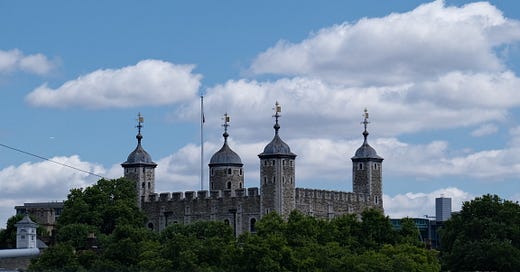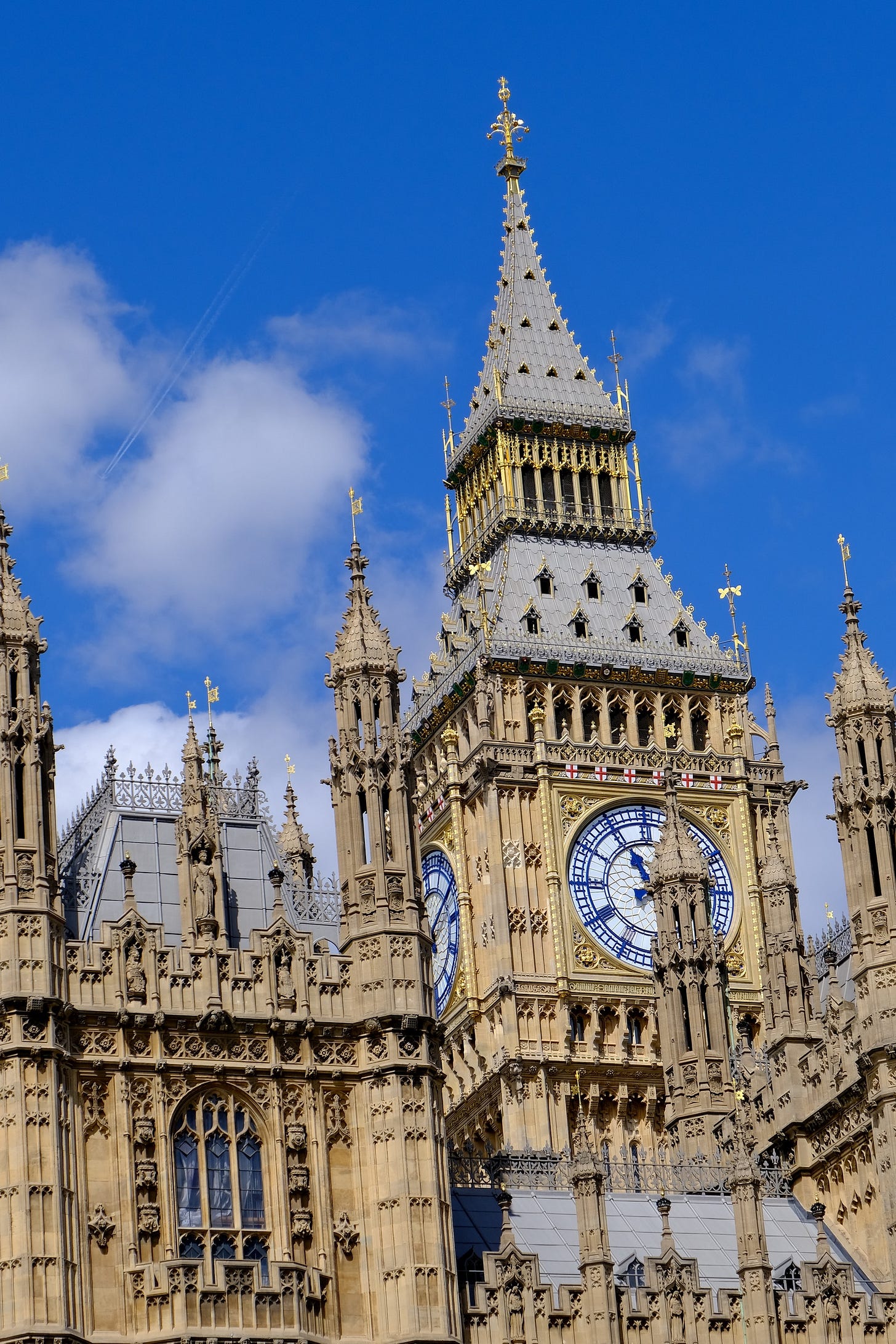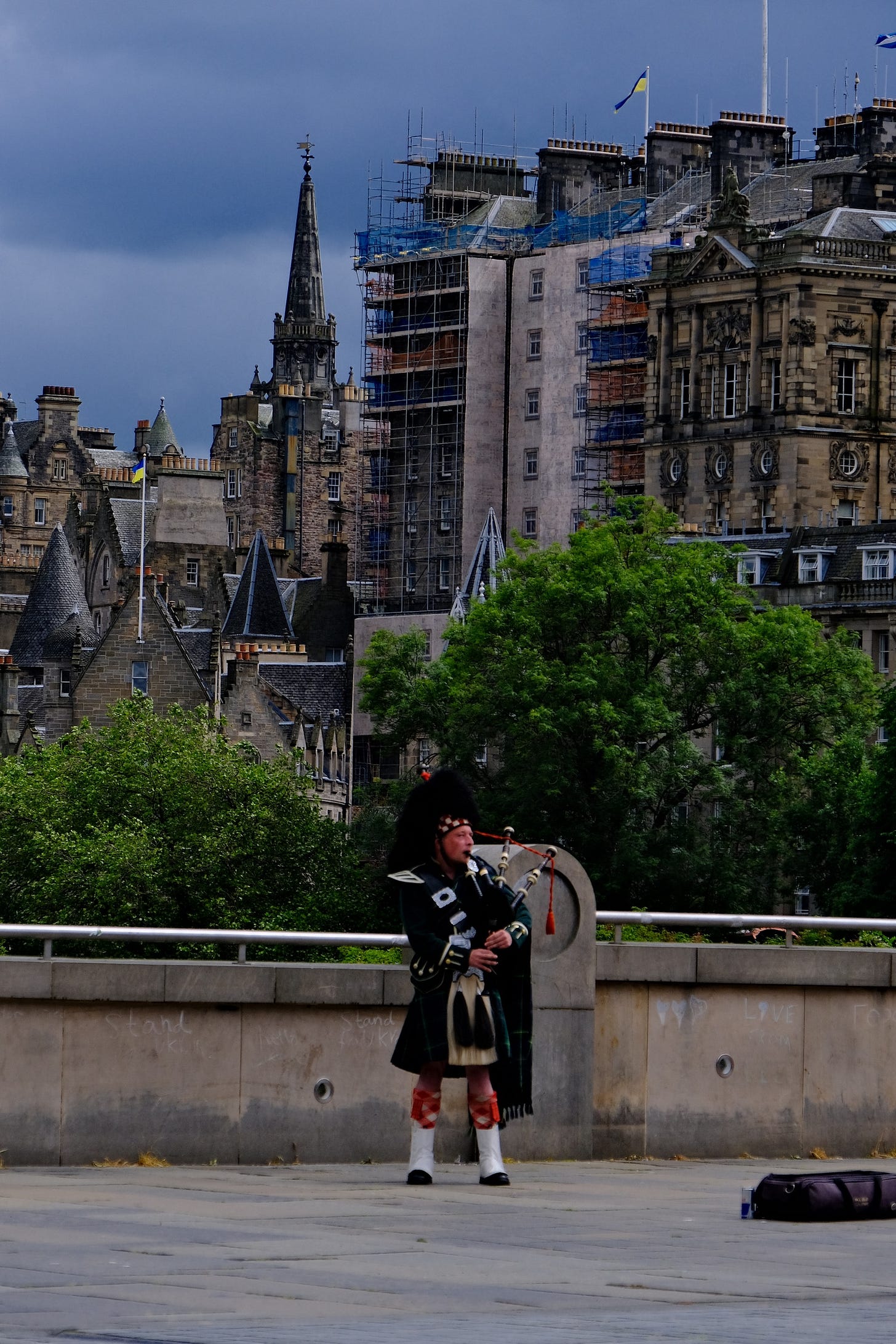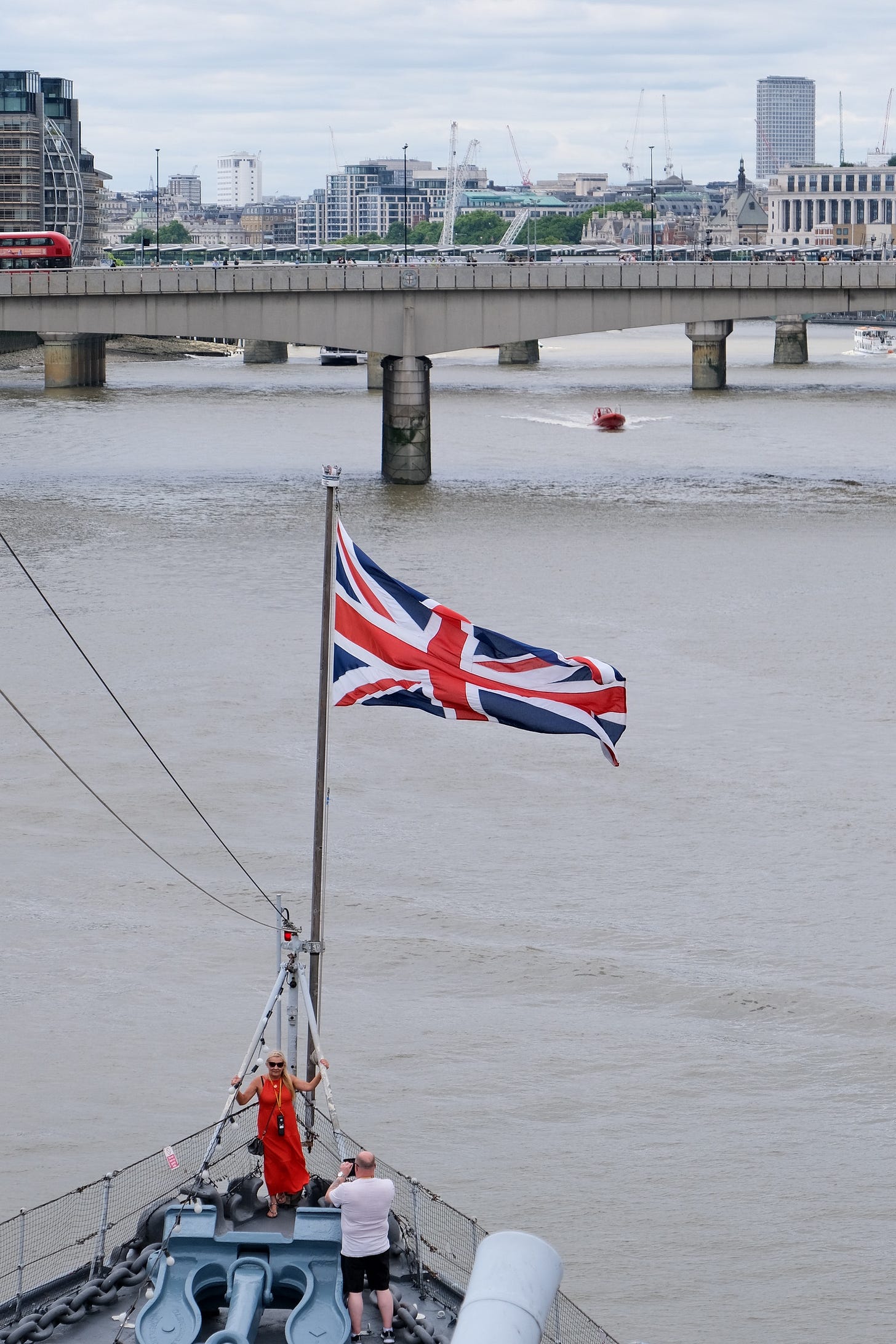The Queen (sorry, it’s still hard to say the late Queen Elizabeth II because she ruled for so long and it’s hard to imagine three months later that she really passed away) famously called 1992 her ‘annus horribilis’ for so many personal disappointments. One has a hard time believing The United Kingdom of Great Britain and Northern Ireland, as her formal realm read, won’t see 2022 as similarly wretched.
The list of tribulations the British have confronted so far this year is extensive. A summer heat wave roasted London and most of England not only in mid-July but also June, albeit more briefly the first time. The extended, scorching July heat drove Britons to find respite in any opportunity to get far away but also challenged the hoards of touristas who annually overwhelm the country. Wonder if it will keep people away in the future? Britain simply does not have the comforts associated with summer heat that the United States or Southeast Asia, for example, developed over the years.
The labour strife has rumbled over most of the year, with unions infuriating commuters, patients in need of health care, citizens needing post delivery, and virtually any other part of the civil sector. Worker shortages are a global phenomenon of the COVID era as people demand more flexibility and reject prior conditions of employment. Britain’s problems in this area run throughout the country at precisely the time the nation is adjusting to post-European Union rules. Unions remain far more organised and powerful in Britain than in the United States so their actions matter.
Then there are Brexit effects. It’s not clear whether another ‘leave’ vote would successfully drive Britain from its always awkward membership in the European experiment but I personally think that razor-thin percentage who supported the Brexit probably would not do so again. The purported benefits of better trade agreements outside of the clutches of nasty Europeans, the freedom from burdensome regulations imposed by the Brussels bureaucrats (as if Britain did not have representatives there, too), and the sense of nationalist victory over foreigners don’t seem to have created a markedly better country as it looks from this side of the pond. Indeed, strong international skepticism about London’s choices remains.
Scottish Nationalist leader Nicola Sturgeon is undaunted by the lessons of Brexit, focusing instead on the benefits of that patriotic surge which supposedly create by freeing Edinburgh from Westminster’s clutches. Sturgeon argues Scotex would free her people to move into the European Union, regardless of Brussels’ message that Scotland cannot simply apply as an European member in Britain’s stead. I have visited most of Scotland over the past decade but am personally mystified as to the economic viability of this proposed independent nation as petroleum in the North Sea fields off Aberdeen continue dwindling. Many of the villages in Scotland are picturesque but are they viable without Britain’s finances? I don’t know but perhaps I am wrong. I am also unclear whether most Scots buy Sturgeon’s argument this time as they did not under her predecessor Alex Salmon only a few years back. Yes, people do talk about the Scots’ Nationalists positions enthusiastically in some quarters.
Perhaps the biggest mystery of Britain today is how the Labour Party, led by an apparently coherent, accomplished individual in Sir Keir Starmer, can not mount a challenge to the parody that the Tory Party has become. No one in the United States should feel smug about our own politics but the Tories in 2022 proved almost inexplicable.
Boris Johnson, BoJo, the Trumpian figure who assumed the Prime Ministership, three years ago, providing a slow-motion reality television show. Repeated evidence of Johnson’s willing support for scoffing at the COVID rules throughout the lockdowns which were wildly unpopular across Britain did not seem to matter to anyone in power. Johnson’s poor judgment, coupled with focus on his personal future rather than the country’s challenges, created grumbling in the senior Tory ranks but his seeming lack of attention to the issues of governing Britain persisted. It wasn’t until July that a no-confidence vote drove him out of power, roughly as the heat wave melted those in the south of the country. A cab driver in Dunfermline, avowedly a Scots Nats man, told me that Bojo and Donald Trump were ‘two cheeks of the same ass’. Well, that is quite a description for a Prime Minister of one of the Permanent Five members of the U.N Security Council.
Yet it still took another several weeks to find a replacement, with BoJo jockeying quite obviously to thwart those seeking to wipe out his embarrassing hold on power. The successor Prime Minister, Liz Truss, was ensconced in Downing Street merely fifty days as her Chancellor of the Exchequer caused a financial meltdown by announcing her plan to lower taxes on the rich in a period of anticipated major financial crush for the country. The Queen’s sudden death two days after Truss received her Majesty’s formal admonition to form a government did not help. The internal dynamics of a Tory party still somewhat enamoured with BoJo, unable to offer economic explanations for the post-Brexit path, and facing the worst inflation in decades is hard for a foreigner to fathom, leading to a curiosity regarding poorly Starmer’s Labour Party could be performing. But, the internal chaos of the Tories who will retain power until a required General Election as late as 2024 is startling as one wonders about governing with popular support. What kind of messaging does this send to Putin and Xi about the need for popular support as they govern?
The final month of 2022 began with a calendar indicating that every single day before Christmas would include some sort of industrial action. The intention to upend what little joy Britons might have over the holiday season is clear. Rushi Sunak’s government has now been in office roughly as long as Truss’s but it’s clear that distrust within and of the Tories runs rampant. How the people must view their government is even harder to explain but they may be too busy trying to pay their heating bills, figure out how to get any medical issues addressed, and wondering where their long-delayed letters and packages are. Public chatter about a former Lady-in-Waiting to the Queen questioning a British citizen about her birth might be seen as a relief from the normal stress of the day.
Britain is a constitutional democracy. Charles III will continue trying to rebuild enthusiasm for the monarchy along with his wife, sister, and elder son in the lead up to the coronation in May 2023. Sunak will continue trying to figure how to tame the unions while implementing tax increases across the nation during a long winter. Questions about how Britain continues in its current form, whether from Scots, Northern Irish, or probably even Welsh, will arise.
It looks like a horrible year for the country is closing and perhaps another one beginning. I don’t see how we can say with any certainty where Britain is going, however. I don’t anticipate some cataclysmic revolution in the country but I do wonder how long it can continue bumping along without a major fix. The 1970s were tough, leading to Margaret Thatcher in 1979. I don’t pretend to be a British scholar but I don’t see a Maggie on the horizon. Wonder who there is? FIN








Keen thoughts, Andy. You may well be right about the selective use of history. Not sure where that takes them, however.
We thought so at the time. The guy was pretty proud of himself, too.